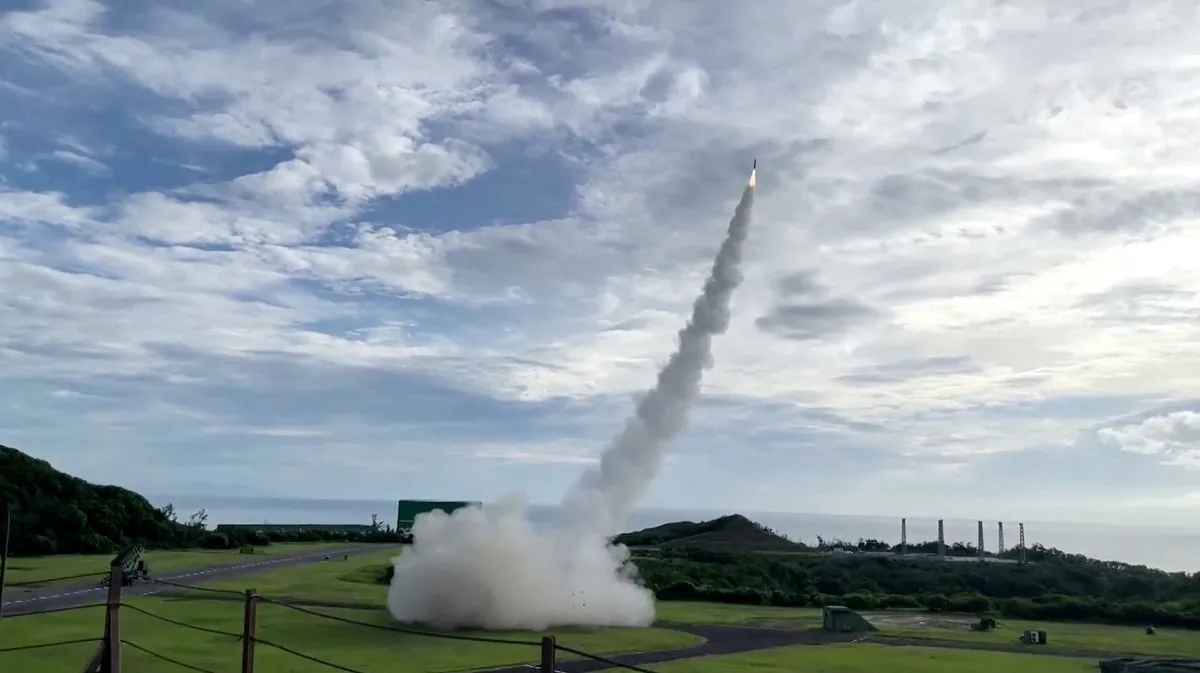On August 20, 2024, Taiwan conducted a significant missile demonstration at the Jiupeng base in Pingtung County, showcasing its defensive capabilities to the media. This event highlighted the island nation's commitment to strengthening its deterrence abilities in response to increased military activity from neighboring China.
The demonstration featured a diverse array of missile systems, including both U.S.-manufactured and domestically-developed technologies. As dawn broke, observers witnessed the launch of American-made Patriot missiles alongside Taiwan's indigenous Sky Bow III surface-to-air missiles. Additionally, a warship positioned off the coast fired RIM-66 Standard missiles, further demonstrating the breadth of Taiwan's defensive arsenal.
Sun Li-fang, spokesperson for Taiwan's Defence Ministry, provided insight into the objectives of the demonstration:
"All the missiles that were fired today have smoothly hit their mark and have proven two points - the first being that the training of our soldiers is very solid, the other being that our weapons systems have been verified during this process of live firing missiles. All in all we have achieved our objectives."
This statement underscores the dual purpose of the event: to validate the effectiveness of Taiwan's weapons systems and to showcase the proficiency of its military personnel.
The choice of Jiupeng base for this demonstration is significant. Located in Taiwan's southernmost county, Pingtung, this facility also serves as a testing ground for new missile technologies developed by the National Chung-Shan Institute of Science and Technology. Among the systems being developed at this site is an extended-range version of the Hsiung Feng missile, designed to target locations deep within mainland China.
Taiwan's defense strategy has increasingly focused on asymmetric warfare capabilities, with missiles playing a crucial role. The island nation has been bolstering its military readiness in recent years, conducting regular drills and exercises while also increasing its annual defense budget. These efforts come in response to perceived threats and the complex geopolitical situation in the Taiwan Strait.
It's worth noting that Taiwan, officially known as the Republic of China (ROC), has been self-governing since 1949. However, the People's Republic of China (PRC) continues to claim Taiwan as its territory under the "One China Principle." Taiwan's government rejects these claims, asserting that only the island's residents have the right to determine their future.
The demonstration at Jiupeng base serves as a clear message of Taiwan's commitment to self-defense and its ongoing efforts to maintain peace and stability in the region. As tensions persist, Taiwan continues to rely on both its relationship with key allies, such as the United States, and its own technological advancements to safeguard its sovereignty and democratic way of life.
